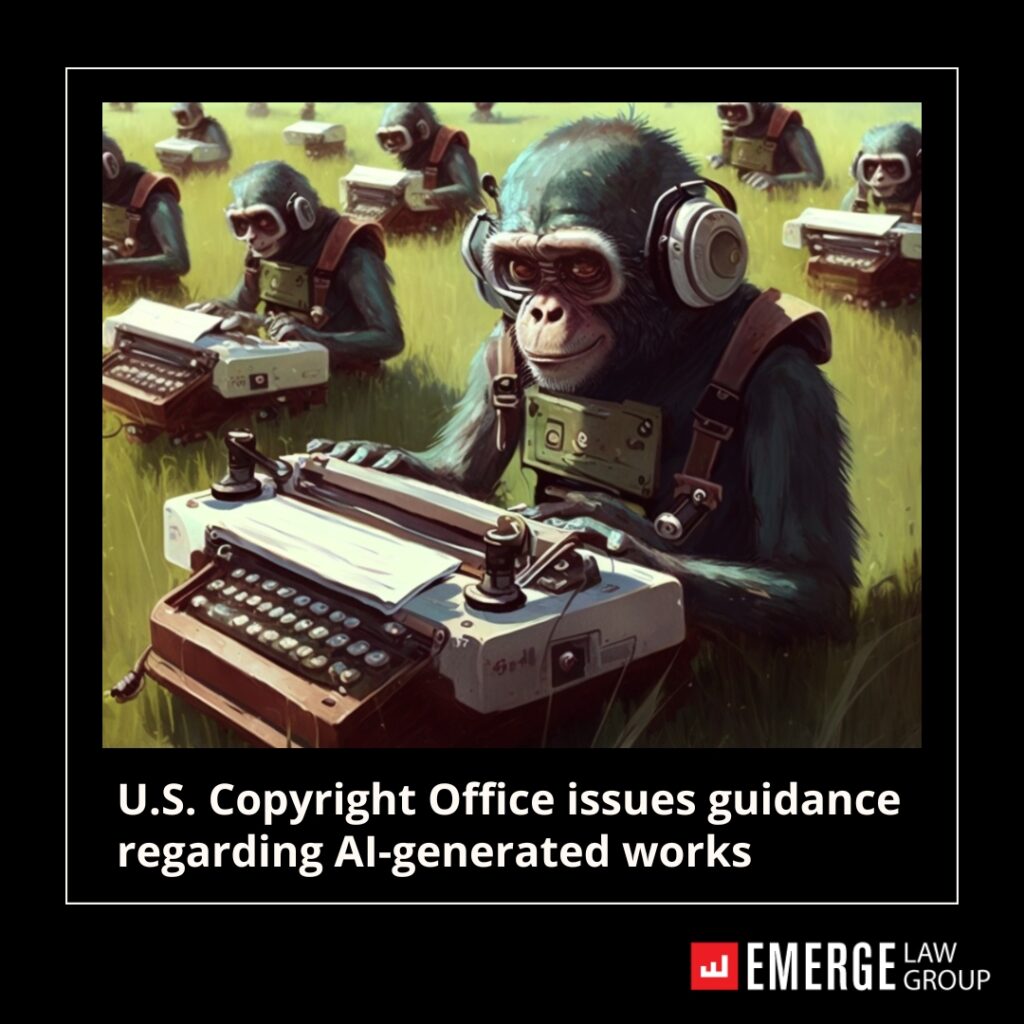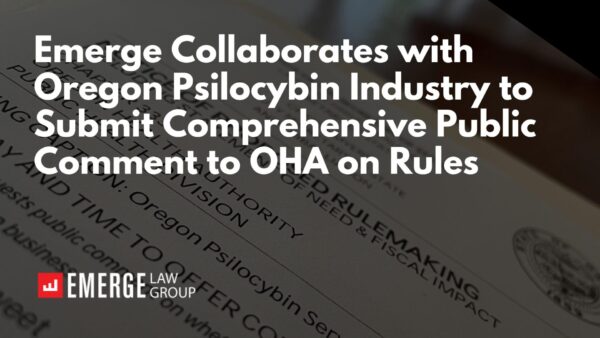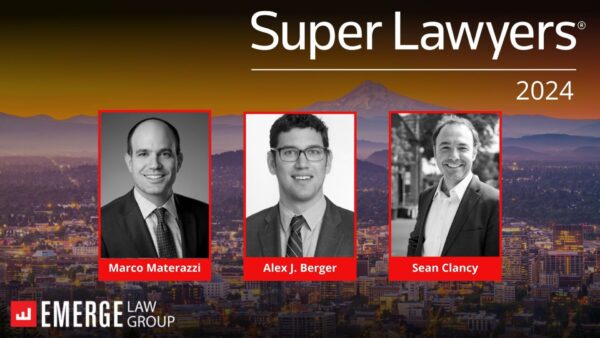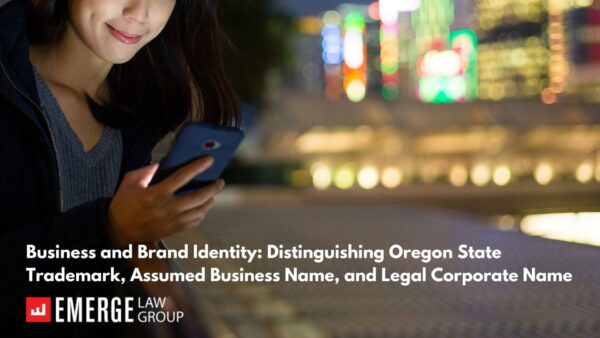Author: Sean Clancy*, Shareholder
Understanding copyright law in the age of artificial intelligence can be complex and confusing. And it will continue to be complex and confusing. But on March 16, 2023, the United States Copyright Office (the “Office”) published some guidance regarding its plans to handle copyright registration for works containing AI-generated materials. The Office also intends to seek public input this year on additional topics, including how the law should apply to the use of copyrighted works in AI training.
The Office has identified three main questions to consider: (1) Is the output protectable under copyright? (2) Are generative works with human authorship elements eligible for registration? (3) What information should be disclosed to the Office when registering?
It is well-established that copyright can protect only material that is the product of human creativity. Most fundamentally, the term “author,” which is used in both the Constitution and the Copyright Act, excludes non-humans.
While the Office will examine works with AI-generated materials on a case-by-case basis, they have emphasized that the traditional human authorship requirement still stands. If a work’s authorship elements were produced entirely by a machine, without any human creative input, then the Office will not register it. However, if a human had creative control over the work’s expression and actually formed the traditional elements for an original work of creative authorship, then the work may be eligible for registration.
In the case of works containing AI-generated material, the Office will consider whether the AI contributions are the result of “mechanical reproduction” or if the human author gave visible form to their “own original mental conception.” In other words, the extent of human creative control over the work’s expression will be a determining factor. The Office provides this example:
[W]hen an AI technology receives solely a prompt from a human and produces complex written, visual, or musical works in response, the “traditional elements of authorship” are determined and executed by the technology—not the human user. Based on the Office’s understanding of the generative AI technologies currently available, users do not exercise ultimate creative control over how such systems interpret prompts and generate material. Instead, these prompts function more like instructions to a commissioned artist—they identify what the prompter wishes to have depicted, but the machine determines how those instructions are implemented in its output. […] When an AI technology determines the expressive elements of its output, the generated material is not the product of human authorship. As a result, that material is not protected by copyright and must be disclaimed in a registration application.
The Office also stresses that applicants have a duty to disclose any AI-generated content contained within their work. They advise applicants to use the “Limitation of Claim” section to exclude AI-generated content that is significant, more than “de minimis.” If an applicant is unsure, they can disclose as a general statement and the Office will contact them for more information.
Notably, previously registered works with AI-generated content must be updated. If a registration is found to contain AI-generated materials that were not previously disclosed, it may be cancelled.
Emerge Law Group’s intellectual property attorneys continue to monitor new factual and legal developments involving AI and copyright, including future guidance from the Office about this powerful new technology.
*The author generated this text in part with Chat-GPT, OpenAI’s large-scale language-generation model. Upon generating draft language, the author reviewed, edited, and revised the language to conform to his own preferences and style and takes ultimate responsibility for the content of this publication.





